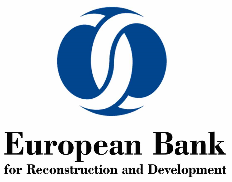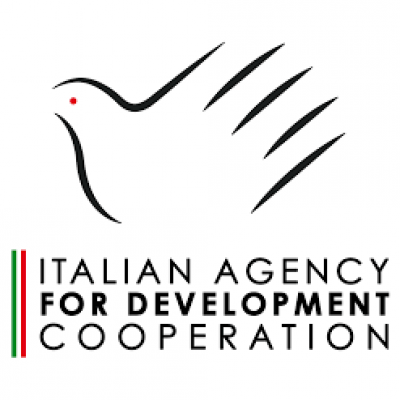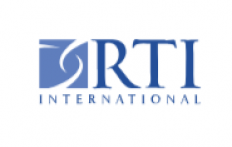Details
Description
Background
Albania has made important steps towards establishing a democratic state, functioning market economy, maintaining a stable economic growth, and achieving human development. Over the recent years the Government has adopted a range of significant strategies and national action plans in regard to delivering social protection reform and boosting social inclusion, and it has built the legal framework of the social protection and social inclusion system with the vision of providing integrated social services at local level capable to ensure the inclusion of all vulnerable groups and persons in Albania. However, poverty in Albania is still high hence there is significant needs for social protection services for specific segments of society, particularly for Roma and Egyptian communities and persons with disabilities, as well as vulnerable women, households with children, older persons, people with intermittent employment, and those living in rural areas and from excluded groups. In order to support improved social services, UN Agencies have engaged in implementing “Leave No-One Behind” Joint Programme, second phase /LNB2 (2021 – 2025). The improvement of social inclusion will be supported by interventions at macro level (central authorities), at meso level (municipalities and civil society organisations) and at micro level, actively involving the target groups into the programme’s implementation.
The LNB second phase programme goal is: “Vulnerable persons and groups have improved access to gender responsive public services that support their social rights, social inclusion and well-being, and are empowered to have a voice in public policy decision-making affecting their lives, and to hold decision-makers accountable for policy implementation”. In order to achieve this, the programme pursues three objectives:
to empower beneficiaries in need of measures for their social protection to access and to contribute themselves to their social inclusion;
to capacitate municipalities/ regions and service providers to provide services and to promote social inclusion;
to capacitate state authorities in the further development and implementation of policies relevant for social inclusion and to further operationalize/ develop social inclusion funding mechanisms, including scaling up of the Social Fund.
While the programme will cover all of Albania, by empowering vulnerable people and by promoting systemic reform of social service and inclusion provision countrywide, the programme adopts geographic foci to ensure that 30 (of a total of 61) municipalities are suitably capacitated to provide a system of integrated social services to cover the needs of the vulnerable population. The programme will primarily use instruments for capacity building and organizational development. Sustainability of the programme investments and effects and scaling up of successful practices will be a constant concern of the programme.
The Leave No One Behind Joint Programme (second phase) will be implemented through the Delivering as One (DaO) mechanism, within the Government of Albania-UN Sustainable Development Cooperation Framework 2022-2026, with the joint participation of four UN agencies of UNDP, UNICEF, UNWOMEN and UNFPA and in close partnership with relevant governmental bodies at central and local level.
Duties and Responsibilities
The State Inspectorate of Social Services (part of the State Inspectorate of Labour and Social Service) is a public institution under the authority of the Ministry of Finance. It is in charge of conducting inspections/controls in all public and non-public entities that provide social care services to citizens at local, regional, or national level. The aim is to ensure that the service providers perform in compliance with the relevant adopted service legislation and standards. The responsibilities and tasks of the Inspectorate of Social Services are defined in the Law 121/2016 on the “Social Care Services in the Republic of Albania”.
Being a central institution, composed of five staff, the Inspectorate conducts inspections, based on pre-established procedures and tools (instruments), which consist of periodic or ad hoc visits to the services providers and examination of their paperwork. At the end of the inspection, they prepare reports with findings and recommendations for the ministry of Health and Social Protection. According to the Mapping of the Social Care Services in Albania (2021), there are 339 public and non-public institutions of different types offering 493 social services, which as per the Decision of the Council of Ministers no. 512, dated 12.05.2006, should be inspected at least twice a year. The relevant regulatory framework calls for a considerable amount of work in the field which with a staff of only 5 inspectors can hardly be carried out timely and effectively.
Therefore, currently this Institution envisages undertaking a reorganization intended to move it under the authority of the Ministry in charge of social protection, as well as to enlarge its structure/organigramme by appointing an inspector in each of the 12 regions (Qarks) across the country.
The State Inspectorate of Social Services is asking for LNB support to assist with the organisational development, considering it as a key aspect for a better fulfilment of their tasks and responsibilities performance and, indirectly for a better performance of the social care service providers.
To provide this technical assistance, the LNB programme is looking for a national consultant/expert whose tasks, responsibilities and deliverables are described below.
The consultant will be recruited as a contractor under the framework agreement (or long-term agreement) modality which does not create a financial obligation or commitment from UNDP. Financial commitments will only be established each time services are requested under the contract, through an agreed triggering action or document that signals the commencement of a given engagement within the period of the contract.
Under the supervision of the UNDP Programme Coordinator for “Leave No One Behind” and the technical direction and support of the State Inspectorate of Social Services, the consultant/s will support the State Inspectorate of the Social Services with the institutional organization development at central and regional levels, by carrying out the following tasks:
Become familiar with the current policy, regulatory and programme framework in the area of Inspection of Social Care Services
Prepare an Inception Report comprising a detailed description of the proposed methodology (approach, sources, suggested stakeholders to meet and consultations to conduct) and suggested work plan and timeline, all to be discussed and agreed with UNDP LNB team and the State Social Services Inspectorate. The Work Plan shall take the form of a detailed description of the steps to be followed. This plan will indicate the sequencing and staging of tasks, key decision points, the expected completion date for each task and the interrelationship between the completion of the tasks and the preparation of the outputs.
Analyze the tasks and responsibilities, and the performance of the social service inspectors as per the regulatory framework and the amount of social service providers operating in the country in order to measure their workload and institutional capacities for an adequate functioning
Based on the analysis’ findings, propose the necessary changes and adjustments regarding the SSI institutional organization, particularly regarding the appointment of social service inspectors at the regional level
Discuss the proposals with the SSI staff, central institutions, and relevant stakeholders at regional level and negotiate with the heads of local structures in Regions on the modalities of cooperation with the SSI
Draft the sub-legal document, content-wise, formalizing the establishment of the social service inspection at the regional level.
Establish, jointly with the SSI staff at central level, the selection criteria for the social service inspectors at regional level
Develop, jointly with the SSI staff at central level, the job description of the social service inspectors at regional level
Identify, jointly with the SSI staff at central level, the needs for technical and logistic support for social service inspectors at the regional level
Establish and deliver, jointly with the SSI staff at central level, a development (training) programme on inspection standards and procedures, for the social service inspectors at the regional level
Support social service inspectors during inspection visits and the preparation of the related reports, for on-the job training purposes
Recommend improvements to the proposed selection criteria, job description and training programme if needed
Prepare and submit a final assignment report (in English) highlighting the expert’s work, outputs, achievements, lessons learned and the proceeding of the consultations and filed visits, including recommendations for future similar interventions
Inception report including the work methodology and the work plan
A report analysing the workload of the SSI and recommending actions for institutional organization development including the appointment of social service inspectors at regional level
Draft by-law on the formalisation of SSI at regional level
on draft Agreement between SSI and Regions on the appointment of social service inspectors at regional level
Draft criteria for the selection of the social service inspectors at regional level
Draft job description of the social service inspectors at regional level
Draft capacity building programme for the social service inspectors
Training sessions delivered for the social service inspectors on inspection standards and procedures
Inspection visits conducted jointly with the social service inspectors and related reports
A brief note recommending improvements to the proposed selection criteria, job description and training programme if needed
A final assignment report
Competencies
Corporate:
Demonstrates integrity by modelling the UN’s values and ethical standards
Commitment to UNDP’s mission, vision and values;
Sensitivity to cultural, gender, religion, race, nationality and age differences;
Treats all people fairly without favouritism
Functional Competencies:
Full understanding of public administration’s organization and functioning
Full understanding of control and inspection principles and techniques
Strong methodological and management skills, especially on controlling / inspection / monitoring / supervision of institutions, which work with standards, manuals, and protocols
Good foundation on controlling the performance of any structure, institution or individual
A good understanding of the Social Protection area
Excellent communication and interpersonal skills including the ability to pose questions, listen, evaluate and capture opinions, suggestions and comments
Strong ability to design and deliver training and mentoring
Capacity to deliver as per the deadlines.
Required Skills and Experience
Academic qualifications:
Postgraduate degree in social sciences, law or closely related fields of studies;
Relevant Experience:
Minimum ten years work experience in performing supervision and/or control and/or inspection-related tasks and responsibilities in public institutions, preferably in the area of services delivery;
Proven experience in designing and/or implementing institutional organization development
Proven direct experience in designing and delivering training;
Experience in providing consultancy services to public and non-public institutions or international organizations;
Language
Fluency in written and spoken Albanian and English.




